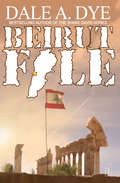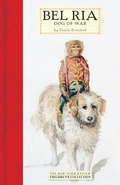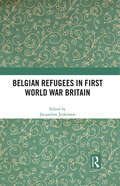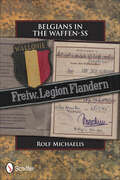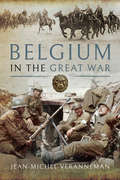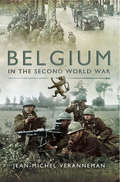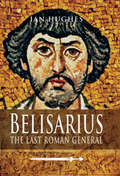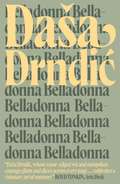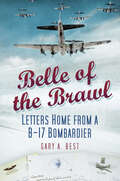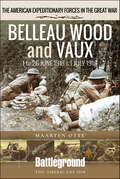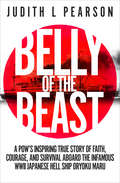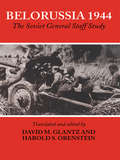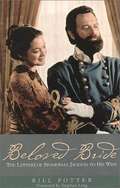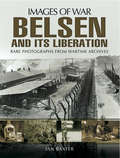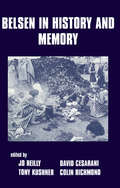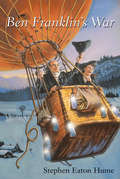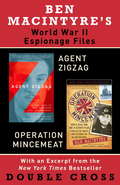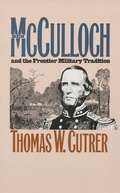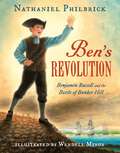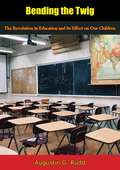- Table View
- List View
Beirut File
by Dale A. DyeWhen his wife disappears on a deep, dark intelligence mission, gunner Shake Davis is desperate to find her and apologize for his precarious behavior in the past. Chan has been out of contact since their blow-up in South Korea, and Shake at first assumes he's being fed a dose of his own medicine, but his investigation among old pals in the game quickly indicates there's a much more to it than a simple domestic dispute. His quest to find his wife leads the retired Tier One Special Operator through the tragic Boston Marathon bombing and back to Beirut, Lebanon, where Shake served on active duty as part of the Multi-National Peacekeeping Force in the early 1980s.Intending to get as close as possible to his wife, Shake finds himself drafted into a mission designed to procure samples of chemical warfare attacks being conducted in Syria. What seems like a simple, straightforward courier assignment rapidly turns into a deadly confrontation with Hezbollah forces in Lebanon's turbulent Beqaa Valley. The mission leads Shake into contact with a Kurdish female warrior who delivers the samples from Syria and then leads him on a desperate escape and evasion run along the Syrian border with the Hezbollah on their trail. His determination to accomplish the mission, reunite with his wife, and save the woman who risked so much to deliver proof of WMDs used on rebel factions in Syria gets Shake Davis captured and tortured by the Hezbollah. The tables are suddenly and unexpectedly turned--and Shake must rely on old and new friends to save his life.
Bel Ria: Dog of War
by Sheila BurnfordSheila Burnford, the author of The Incredible Journey, offers the spellbinding tale of a small dog caught up in the Second World War, and of the extraordinary life-transforming attachments he forms with the people he encounters in the course of a perilous passage from occupied France to besieged England. Nameless, Burnford’s hero first turns up as a performing dog, a poodle mix earning his keep as part of a gypsy caravan that is desperately fleeing the Nazi advance. Taken on ship by the Royal Navy, he is given the name of Ria and serves as the scruffy mascot to a boatload of sailors. Marooned in England in the midst of the Blitz, Ria rescues an old woman from the rubble of her bombed house, and finds himself unexpectedly transformed into Bel, the coiffed and pampered companion of her old age. Bel Ria is an exciting story about a compellingly real, completely believable dog. Readers of all sorts and ages will find in Bel Ria a companion to take to heart.
Belgian Refugees in First World War Britain
by Jacqueline JenkinsonAround 250,000 Belgian refugees who fled the German invasion spent the First World War in Britain – the largest refugee presence Britain has ever witnessed. Welcomed in a wave of humanitarian sympathy for ‘Poor Little Belgium’, within a few months Belgian exiles were pushed off the front pages of newspapers by the news of direct British involvement in the war. Following rapid repatriation at British government expense in late 1918 and 1919 Belgian refugees were soon lost from public memory with few memorials or markers of their mass presence.Reactions to Belgian refugees discussed in this book include the mixed responses of local populations to the refugee presence, which ranged from extensive charitable efforts to public and trade union protests aimed at protecting local jobs and housing. This book also explores the roles of central and local government agencies which supported and employed Belgian refugees en masse yet also used them as a propaganda tool to publicise German outrages against civilians to encourage support for the Allied war effort. This book covers responses to Belgian refugees in England, Scotland, Ireland and Wales in a Home Front wartime episode which generated intense public interest and charitable and government action. This book was originally published as a special issue of Immigrants and Minorities: Historical Studies in Ethnicity, Migration and Diaspora.
Belgians in the Waffen-SS
by Rolf MichaelisIn the years between 1940 and 1945, a total of approximately 12,500 Belgians served in the Waffen-SS, a number roughly equal to the strength of an infantry division in 1944. Because of political and social problems and different objectives of the volunteers, however, the men were not combined in a single unit, rather they were deployed in three different formations. This book describes the major units of the Waffen-SS in which the Belgian volunteers were concentrated, where they were deployed, and the battles they took part in. It also explains the reasons why the men served in three different Waffen-SS divisions.
Belgium in the Great War
by Jean-Michel VerannemanA historian and former Belgian diplomat sheds light on the country&’s tumultuous experience during WWI. In August of 1914, the German Empire invaded neutral Belgium in order to outflank the defenses of the French army. Yet the Belgian army resisted, managing to hold a small part of unoccupied Belgian territory north of Ypres until the Armistice of 1918. Because of their heroic defense, Belgium and its King enjoyed enormous international prestige after the war. Occupied Belgium suffered civilian executions and severe destruction. It was widely stripped of its highly developed industrial infrastructure. It was saved from starvation by food shipments from the United States which came in via neutral Holland. Four and a half years later, Belgium emerged a different country with experiences that would leave a lasting on its spirit as well as wide-ranging political implications.
Belgium in the Second World War
by Jean-Michel VerannemanThis WWII history sheds light on Belgian resistance and fighting from the battle against Nazi invasion through its occupation and liberation. When the Nazis invaded neutral Belgium in May of 1940, the Belgian armed forces held out against a vastly superior enemy for eighteen grueling days. The elected Government went into exile in London but King Leopold III controversially remained with his people as a prisoner. In this authoritative history, Jean-Michel Veranneman discusses how many brave Belgians continued the fight both outside and inside their country. While the Colonial Army fought in East Africa, the Belgian Brigade fought from Normandy to Germany. The Belgian Resistance organized escape routes, sabotaged their occupiers&’ activities, and spied for the Allies. Veranneman also covers those who collaborated and fought for the Nazis, many of whom were later tried for war crimes. He also delves into the loss of roughly half the Jews in Belgium with many stirring stories of courage and tragedy.Belgium in the Second World War is an overdue and honest account of one nation&’s varied experiences during five years of Nazi occupation and oppression.
Belisarius: The Last Roman General
by Ian HughesA military history of the campaigns of Belisarius, the greatest general of the Eastern Roman (Byzantine) Emperor Justinian. He twice defeated the Persians and reconquered North Africa from the Vandals in a single year at the age of 29, before going on to regain Spain and Italy, including Rome (briefly), from the barbarians. It discusses the evolution from classical Roman to Byzantine armies and systems of warfare, as well as those of their chief enemies, the Persians, Goths and Vandals. It reassesses Belisarius' generalship and compares him with the likes of Caesar, Alexander and Hannibal. It is illustrated with line drawings and battle plans as well as photographs.
Belladonna (MacLehose Press Editions #2)
by Daša Drndic"Belladonna is brutal, beautiful, and unforgettable . . . One of the truly outstanding novels of recent years" EILEEN BATTERSBY, Los Angeles Review of Books** Winner of the Warwick Prize for Women in Translation 2018**** Shortlisted for the inaugural E.B.R.D. Prize for Literature **** Shortlisted for the Oxford-Weidenfeld Translation Prize **An excoriating work of fiction that references the twentieth century's darkest hoursAndreas Ban is a writer and a psychologist, an intellectual proper, but his world has been falling apart for years. When he retires with a miserable pension and finds out that he is ill, he gains a new perspective on the debris of his life and the lives of his friends. In defying illness and old age, Andreas Ban is cynical and powerful, and in his unravelling of his own past and the lives of others, he uncompromisingly lays bare a gamut of taboos. Andreas Ban stands for a true hero of our times; a castaway intellectual of a society which subdues every critical thought under the guise of political correctness. Belladonna addresses some of the twentieth century's worst human atrocities in a powerful fusion of fiction and reality, the hallmark of one of Europe's finest contemporary writers.Translated from the Croatian by Celia Hawkesworth
Belle of the Brawl: Letters Home from a B-17 Bombardier
by Gary A BestThis wartime biography follows the life of a Second World War B-17 bombardier from the beginning of the war to its conclusion. Based on the 150 letters the airman, Fred Lull, wrote home to his mother, much of the horror of what he experienced of the wing of his plane, aircraft destroyed, dismemberment by flak, go unshared. Fred did not want his mother to worry and could not tell her: "I noticed some movement and a flash of light out of the corner of my right eye. The plane that had been flying right next to us had exploded and simply disappeared." Using the bombardier's combat flight record, research data and interviews of former B-17 crew members, the story unfolds, breaking through the barrier of an unwillingness and inability to tell loved ones of the smell and taste of war.
Belleau Wood and Vaux: 1 to 26 June & July 1918
by Maarten OtteProfusely illustrated by contemporary photographs and numerous maps, the narrative supplemented by a number of first hand accounts; the whole is supported by several walking and car tours. The Battle of Belleau Wood has a prominent place in the history of the United States Marine Corps; it took place between 6 and 27 June 1918 (sometimes considered to be 1-26 June). However, when on 6 June 1918 the marines launched their attack on the wood, the biggest German threat here was nearly over. Its significance to the Corps is underlined by the presence not only of a monument to the 4th (Marine) Brigade of the US 2nd Division but also by a preserved part of the wood, which is situated to the rear of the Aisne-Marne American Cemetery. The fighting here marks the first major battle by the USMC in Europe. The battle came – although the participants were unaware of this – at the end of the the third great German offensive of Spring 1918, the Blucher-York Offensive, also known as the 3rd Battle of the Aisne, which was launched on 27 May and officially ended on 4 June. Like its predecessors that Spring, an offensive which had started with startling territorial gains had almost ground to a halt by the time that the 2nd Division, and thus the marines, were called in to assist the French Sixth Army in holding the line and in retaking, where possible, crucial positions. What started out as preventing the Germans from breaking through the French lines and pushing on to Paris ended in a three-weeks long slogging match in and around Belleau Wood. It was on French General Duchêne’s instigation that the woods were attacked; but in reality the marines could have just held the line and been satisfied with that. As it was, they were flung into action with little time to prepare. The fighting in Belleau Wood was extremely brutal and involved several attacks and counter-attacks; neither side was willing to yield an inch of the terrain of a feature that had local strategic significance, particularly to the Germans. Although the offensive locally here came to an end and the initial German threat in the area was nearly overcome, the focal point of the fighting moved to Villers Cotterêts, twenty-five kilometres north-east of Belleau. The Americans were not quite finished when Belleau Wood was finally captured, as the nearby village of Vaux was taken by an army brigade of the 2nd Division in a text book attack on 1 July. The USMC has always had a good ‘publicity machine’ and Belleau Wood was certainly well known to the wider American public in the war years, particularly as it was an early action by a formation of the AEF. Although largely forgotten since the Second World War – the memory perhaps kept alive by the unusual preserved remnant of the battlefield, Belleau Wood’s reputation has been enhanced by increased interest in the war since the turn of the century. Nowadays, the battle is sometimes called a ‘pivotal event in the First World War and an iconic battle in US Marine Corps history’ by several American authors, which some of their European counterparts might regard as somewhat exaggerated. This is the latest in a series of Battleground books by Maarten Otte on the American Expeditionary Forces. The AEF’s performance in the war is relatively little known, not least in the USA; Belleau Wood is one of the few engagements that still carries some resonance. It is fortunate that so many of the AEF’s actions took place in parts of France that have seen little development and are in agricultural or wooded country, which means that traces of their fighting are relatively plentiful.
Bellewether
by Susanna KearsleyFrom the bestselling author of A Desperate Fortune and The Firebird, comes an entrancing new novel of love, war, and historical intrigue.Some houses seem to want to hold their secrets. It’s 1759 and the world is at war, pulling the North American colonies of Britain and France into the conflict. The times are complicated, as are the loyalties of many New York merchants who have secretly been trading with the French for years, defying Britain’s colonial laws in a game growing ever more treacherous. When captured French officers are brought to Long Island to be billeted in private homes on their parole of honour, it upends the lives of the Wilde family—deeply involved in the treasonous trade and already divided by war. Lydia Wilde, struggling to keep the peace in her fracturing family following her mother’s death, has little time or kindness to spare for her unwanted guests. And Canadian lieutenant Jean-Philippe de Sabran has little desire to be there. But by the war’s end they’ll both learn love, honour, and duty can form tangled bonds that are not broken easily. Their doomed romance becomes a local legend, told and re-told through the years until the present day, when conflict of a different kind brings Charley Van Hoek to Long Island to be the new curator of the Wilde House Museum. Charley doesn’t believe in ghosts. But as she starts to delve into the history of Lydia and her French officer, it becomes clear that the Wilde House holds more than just secrets, and Charley discovers the legend might not have been telling the whole story...or the whole truth.
Bellewether
by Susanna KearsleyFrom the bestselling author of A Desperate Fortune and The Firebird, comes an entrancing new novel of love, war, and historical intrigue.Some houses seem to want to hold their secrets. It&’s 1759 and the world is at war, pulling the North American colonies of Britain and France into the conflict. The times are complicated, as are the loyalties of many New York merchants who have secretly been trading with the French for years, defying Britain&’s colonial laws in a game growing ever more treacherous. When captured French officers are brought to Long Island to be billeted in private homes on their parole of honour, it upends the lives of the Wilde family—deeply involved in the treasonous trade and already divided by war. Lydia Wilde, struggling to keep the peace in her fracturing family following her mother&’s death, has little time or kindness to spare for her unwanted guests. And Canadian lieutenant Jean-Philippe de Sabran has little desire to be there. But by the war&’s end they&’ll both learn love, honour, and duty can form tangled bonds that are not broken easily. Their doomed romance becomes a local legend, told and re-told through the years until the present day, when conflict of a different kind brings Charley Van Hoek to Long Island to be the new curator of the Wilde House Museum. Charley doesn&’t believe in ghosts. But as she starts to delve into the history of Lydia and her French officer, it becomes clear that the Wilde House holds more than just secrets, and Charley discovers the legend might not have been telling the whole story...or the whole truth.
Belly of the Beast: A POW's Inspiring True Story of Faith, Courage, and Survival Aboard the Infamous WWII Japanese Hell Ship Oryoku Maru
by Judith L. Pearson&“A searing tribute . . . [to] America in its bleakest hour&” (Sen. John McCain, New York Times–bestselling author of Faith of My Fathers). On December 13, 1944, POW Estel Myers was herded aboard the Japanese prison ship, the Oryoku Maru, with more than sixteen hundred other American captives. More than eleven hundred of them would be dead by journey&’s end . . . The son of a Kentucky sharecropper and an enlistee in the navy&’s medical corps, Myers arrived in Manila shortly before the bombings of Pearl Harbor and the other six targets of the Imperial Japanese military. While he and his fellow corpsmen tended to the bloody tide of soldiers pouring into their once peaceful naval hospital, the Japanese overwhelmed the Pacific islands, capturing seventy-eight thousand POWs by April 1942. Myers was one of the first captured. After a brutal three-year encampment, Myers and his fellow POWs were forced onto an enemy hell ship bound for Japan. Suffocation, malnutrition, disease, dehydration, infestation, madness, and complete despair claimed the lives of nearly three quarters of those who boarded &“the beast.&” Myers survived. A compelling account of a rarely recorded event in military history, this is more than Myers&’s true story—this is an homage to the unfailing courage of men at war, an inspiring chronicle of self-sacrifice and endurance, and a tribute to the power of faith, the strength of the soul, and the triumph of the human spirit. &“An inspiring look at one of World War II&’s darkest hours.&” —James Bradley, #1 New York Times bestselling author of Flags of our Fathers and Flyboys &“A searing chronicle.&” —Kirkus Reviews
Belorussia 1944: The Soviet General Staff Study (Soviet (Russian) Study of War #No. 12)
by Harold S. Orenstein David M. GlantzA new edited translation of the Soviet Staff study of the Red Army's Belorussian operation in the summer of 1944, which was unprecedented in terms of its scale, scope and strategic consequences. The Soviet Stavka had planned a campaign consisting of a series of massive operations spanning the entire Soviet-German front. Four powerful fronts (army groups) operated under close Stavka (high command) control. Over 1.8 million troops acomplished a feat unique in the history of the Red Army: the defeat and dismemberment of an entire German army group. This book is a translation of the Soviet General Staff Study No 18, a work originally classified as 'secret' and intended to educate Soviet commanders and staff officers. The operation is presented from the Soviet perspective, in the words of the individuals who planned and orchestrated the plans. A map supplement, including terrain maps, is provided to illustrate the flow of the operation in greater detail.
Beloved Bride: The Letters of Stonewall Jackson to His Wife 1857-1863
by William PotterBeloved Bride: He called her "my beloved esposa" because Anna was his dearest love on this earth. Ironically, while the great military exploits of General Stonewall Jackson are studied in military schools the world over and his iron will and stern self-discipline has become legendary, little is said about his remarkable marriage. Even in the midst of the most arduous military campaigns, Stonewall took the time to send home extensive letters of love and devotion.
Beloved Enemy
by Jane FeatherA moving, unforgettable romance of defiance and desire from the New York Times-bestselling author of The London Jewels Trilogy.England's disastrous Civil War has robbed Lady Virginia Courtney of everything she holds dear—everything but her home, perched on the cliffs of the Isle of Wight. Left alone to defend it, she is powerless when the enemy forces arrive—but even more defenseless when she meets their leader, a fiercely commanding man whose eyes seem to see through to her very soul.Colonel Alexander Marshall is no less affected by his prisoner of war, the bewitching, capable woman who has seen so much loss in her young life. Though he would be justified to send her to the mainland—and to her certain death as a traitor—his hand is stayed by compassion . . . and undeniable desire. But even the most passionate love affair may not be enough to hold two sworn enemies together in the midst of war. Praise for Jane Feather“Irresistibly sexy and witty, Jane Feather is one of the all-time greats of historical romance.”—Madeline Hunter, New York Times-bestselling author“An accomplished storyteller . . . rare and wonderful.”—Los Angeles Daily News “An author to treasure.”—RT Book Reviews
Beloved Enemy (Jack McClure Series #5)
by Eric Van LustbaderFrom the New York Times bestselling author of the Jason Bourne SeriesNew from Eric Van Lustbader, the author of The Bourne Legacy and The Bourne Betrayal, comes Beloved Enemy, the thrilling fifth installment in the New York Times bestselling Jack McClure series. In the stunning follow up to Father Night, Jack McClure faces a choice: help the woman he loves, or destroy her as the enemy she is. Shortly after McClure leaves a late night meeting with Dennis Paull, the Secretary of Homeland Security, Paull is found-shot dead. The President is furious but equally frightened of a scandal, since Jack McClure is one of their own-an operative and Paull's friend. Who will protect the country if even McClure cannot be trusted? With top officials in the CIA and FBI after him, McClure, still devastated over his friend's death, goes on the run. Someone framed him for Paull's murder, possibly to prevent him from accomplishing Paull's last request-a task vital to U. S. National Security. Someone in the intelligence community has gone rogue and is reporting to The Syrian, one of the most cruel, aggressive terrorists McClure and Paull have ever come across. McClure has been charged with securing the name of themole, but when Paull's informant goes missing, McClure realizes his mission has only begun. Jack may be setting off after a mole, but he knows that ultimately he will have to confront The Syrian. Which also means confronting The Syrian's lover, Annika Dementieva, the woman Jack once loved and lost. On a quest to find the mole before cloaked agents around the world are exposed and murdered, Jack will soon find himself facing his own beloved enemy. . .
Belsen and It's Liberation: Rare Photographs From Wartime Archives (Images Of War Bks.)
by Ian BaxterAccompanied by rare and unpublished photos with in-depth captions the book presents a unique visual account of one of the Nazi's most infamous concentration camps. The imagery shows the SS's murderous activities inside Belsen, and also reveal another disturbing side to them relaxing in their barracks or visiting their families and loved ones.The book is an absorbing insight into how the SS played a key part in murdering, torturing and starving to death tens of thousands of inmates. During the latter part of the war as many as 500 a day were perishing from the long-term effects of starvation as well as the resultant diseases. There is a wealth of information on how the camp was run and all aspects of life inside the camp for the inmates are covered. The final episode of Belsen is witnessed by British soldiers of the Second Army, who were completely unprepared for what they encountered when they arrived at the gates of the camp. Inside the camp they found some 10,000 unburied dead in addition to the mass graves already containing 40,000 more corpses.This latest Images of War book captures the shocking story of those that ran Belsen, those that perished, and the troops that liberated the living from their hell.
Belsen in History and Memory
by David Cesarani Tony Kushner Jo Reilly Colin RichmondDrawing on documentary and oral sources in Yiddish, Hebrew, German, Dutch and French, this book challenges many sterotypes about Belsen, and reinstates the groups hitherto marginalized or ignored in accounts of the camp and its liberation.
Ben Bennions DFC: Battle of Britain Fighter Ace
by Nick ThomasBen Bennion enlisted in the pre-war RAF, serving first as an 'erk' (ground crew) before being selected for pilot training. His first posting led to service in the Middle-East and Bennion's passport and other travel documents had to be rushed through. A clerical error led to his name being recorded as 'Bennions'.Ben served in 41 Squadron and following their overseas tour he returned to the UK and Catterick. Patrols and scrambles were common throughout the early months of the war, but it was in May 1940, that 41 Squadron first saw the enemy in any number, providing air cover for the retreating BEF. The Dunkirk operations saw Bennions record his first combat victory—he was to damage or destroy 20 plus enemy aircraft during the following months, earning the DFC and becoming one of the RAF's top scorers. The squadron alternated between Catterick and Hornchurch, and although Bennions was afforded some rest between operational periods, the front-line the sorties came thick and fast, particularly during the latter phases of the Battle of Britain when Bennions was flying several patrols and scramble every day. His tally grew steadily. His much deserved DFC was promulgated on 1 October 1940, the day he was due to begin a short period of leave. However he decided to have one last crack at the enemy and during this engagement, adding another Messerschmitt BF 109 to his total, he was hit and forced to bale out. Badly wounded in the head, Bennions lost an eye and became a member of Sir Archibald McIndoe's famous Guinea Pig Club.
Ben Franklin's War
by Stephen Eaton HumeAfter his "wonderful airship" crashes near St. Francis of Assisi’s Home for Foundlings in Quebec City, Ben Franklin is thrown slightly off course in his carefully laid plan to coax Canada into joining the Americans in their fight against England’s rule. A motley crew of orphans hides the famous inventor from the British Redcoats during the American War of Independence. One of these orphans, 16-year-old Michael Flynn, is deaf and was abandoned by his parents, who were convinced that his problem was caused by demons who "seized his tongue and prevented him from speaking." Michael leads his best friends, White Rat and Briony, through the dangerous spy portals of underground Montreal carrying secret messages to ensure Franklin eludes the gallows. When Michael’s sign language inspires the great scientist to create a top-secret spy code, Michael and his friends are flung headlong into an adventure they’ll never forget.
Ben Macintyre's World War II Espionage Files: Agent Zigzag, Operation Mincemeat
by Ben MacintyreAgent Zigzag and Operation Mincemeat, two thrilling accounts of World War II espionage, are available together as an ebook—with an excerpt from the New York Times bestseller Double Cross. &“Not since Ian Fleming and John le Carré has a spy writer so captivated readers.&”—The Hollywood ReporterAGENT ZIGZAG • &“Wildly improbably but entirely true . . . [a] compellingly cinematic spy thriller with verve.&”—Entertainment Weekly Eddie Chapman was a charming criminal, a con man, and a philanderer. He was also one of the most remarkable double agents Britain has ever produced. Inside the traitor was a man of loyalty; inside the villain was a hero. The problem for Chapman, his spymasters, and his lovers was to know where one persona ended and the other began. Based on recently declassified files, Agent Zigzag tells Chapman&’s full story for the first time. It&’s a gripping tale of loyalty, love, treachery, espionage, and the thin and shifting line between fidelity and betrayal. OPERATION MINCEMEANT • &“Brilliant and almost absurdly entertaining.&”—The New Yorker Near the end of World War II, two British naval officers came up with a brilliant and slightly mad scheme to mislead the Nazi armies about where the Allies would attack southern Europe. To carry out the plan, they would have to rely on the most unlikely of secret agents: a dead man. Ben Macintyre&’s dazzling, critically acclaimed bestseller chronicles the extraordinary story of what happened after British officials planted this dead body—outfitted in a British military uniform with a briefcase containing false intelligence documents—in Nazi territory, and how this secret mission fooled Hitler into changing military positioning, paving the way for the Allies to overtake the Nazis.
Ben Mcculloch and the Frontier Military Tradition
by Thomas W. Cutrer[A] well-written, comprehensively researched biography.--Publishers Weekly "Will both edify the scholar while captivating and entertaining the general reader. . . . Cutrer's research is impeccable, his prose vigorous, and his life of McCulloch likely to remain the standard for many years.--Civil War "A well-crafted work that makes an important contribution to understanding the frontier military tradition and the early stages of the Civil War in the West.--Civil War History "A penetrating study of a man who was one of the last citizen soldiers to wear a general's stars.--Blue and Gray "A brisk narrative filled with colorful quotations by and about the central figure. . . . Will become the standard biography of Ben McCulloch.--Journal of Southern History "A fast-paced, clearly written narrative that does full justice to its heroically oversized subject.--American Historical Review
Ben's Revolution: Benjamin Russell and the Battle of Bunker Hill
by Nathaniel PhilbrickHistory comes alive in this gripping account of a young boy caught up in the start of the Revolutionary War. Based on an episode in National Book Award–winning author Nathaniel Philbrick&’s New York Times bestseller Bunker Hill: A City, A Siege, A Revolution, this engrossing story allows readers to experience history from a child&’s perspective, and Wendell Minor&’s stunning paintings will transport readers back to the early days of the Revolutionary War. Benjamin Russell is in school on the morning of April 19th, 1775, when his teacher announces, &“The war&’s begun, and you may run!&” Ben knew this day was coming; after all, tensions had been mounting between the colonists and the British troops ever since the Boston Tea Party. And now they have finally reached the breaking point. Ben and his friends excitedly rush out of their classroom to bear witness, and follow the throngs of redcoats marching out of Boston toward Concord. Much to Ben&’s surprise, Boston is sealed off later that day—leaving the boys stuck outside the city, in the middle of a war, with no way to reach their families. But Ben isn&’t worried—he&’s eager to help the Patriots! He soon becomes a clerk to the jovial Israel Putnam, a general in the provincial army. For months he watches the militia grow into an organized army, and when the Battle of Bunker Hill erupts, Ben is awed by the bravery of the Patriots, although saddened by the toll war takes. He later goes on to become an apprentice at a Revolutionary newspaper, and it&’s a happy day when they get to report on the signing of the Declaration of Independence. Praise for Bunker Hill: A City, A Siege, A Revolution &“Philbrick guides us beautifully through Revolutionary Boston, with the Battle of Bunker Hill as his story&’s grand climax.&”—The New York Times Book Review &“Masterly narrative . . . Philbrick tells the complex story superbly . . . gripping book.&”—The Wall Street Journal &“A masterpiece of narrative and perspective. . . . This is not only . . . the greatest American story. It is also the American story.&”—The Boston Globe &“You will delight in the story and the multitude of details Philbrick offers up.&”—USA Today
Bending the Twig: The Revolution in Education and Its Effect on Our Children
by Augustin G. Rudd‘Tis education forms the common mindJust as the twig is bent the tree’s inclined—Alexander PopeAugustin G. Rudd in his book, Bending the Twig, clearly points out the implications of a program of liberal teacher training, and its effect on the public schools of the United States where the notions of Progressive or New Education have directly or indirectly influenced every level of our educational system.Part II of this book is especially valuable for its definition of the path the social educators are following. Augustin contrasts the concept of a free society based on the primacy of the individual with the concept of the statist order advocated by many of the New Educators who choose to use the schools as an instrument for social change rather than an agency for instruction in the skills, knowledges, and heritage necessary to maintain our culture.It is interesting to know that the Russians experimented with progressive education until its bad results became evident. Then, using their centralized power, they eliminated it. This return to the essentials of education may have aided Russia in making her recent technological advances.After reading this book, one comes away with the feeling that as generation after generation of students graduate from our schools conditioned to the tenets of socialism, we will eventually lose our republican form of government and individual liberty because our citizens will lack even the basic knowledge of our heritage.—FRANK B. KEITH, The Freeman, March 1958
